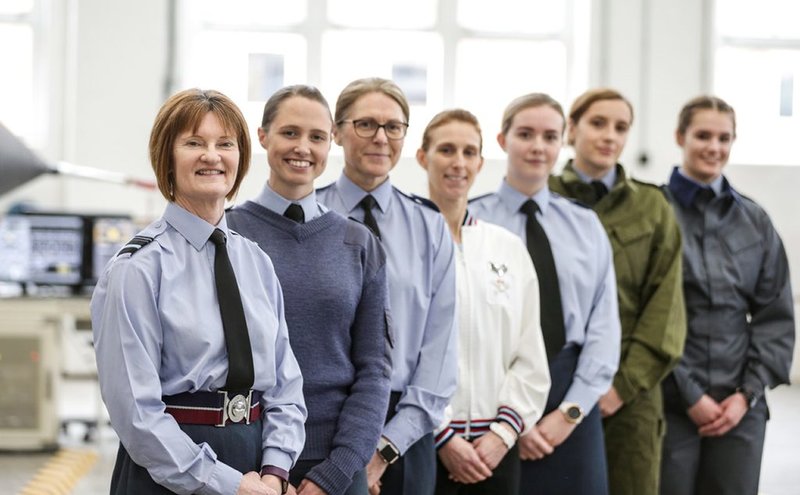Q&A | TRAINING
Military technology training: lessons from the private sector
Sean Farrington, senior vice president for EMEIA at technology skills online learning specialist Pluralsight, spent 14 years serving as an officer in the logistics arm of the British Army. Here he tells Berenice Baker what military organisations can learn from the private sector’s approach to training and the skills veterans can bring the business workplace.

// Image: Sean Farrington, senior vice president for EMEIA at Pluralsight
Lorem ipsum dolor sit amet, consectetur adipiscing elit. Suspendisse laoreet nunc rutrum leo iaculis, sed dignissim eros venenatis. Nullam et semper lorem. Nulla facilisi. Donec placerat nisi sed urna convallis, in suscipit ex sollicitudin. Etiam vehicula justo ac tellus luctus elementum. Sed tincidunt euismod finibus. Pellentesque habitant morbi tristique senectus et netus et malesuada fames ac turpis egestas. Sed vitae eros in dolor tempor finibus. Cras convallis egestas ipsum et faucibus. Praesent fringilla erat in orci fermentum laoreet. Nullam at neque in sem vehicula congue ut nec ipsum.

// Sean Farrington, senior vice president for EMEIA at Pluralsight
// Berenice Baker:
Can military personnel use the same technology training platforms as private sector companies?
// Sean Farrington:
I fundamentally believe they can. What you have in the military is a collection of highly-motivated individuals. Part of a career in the military is to have a very clear and structured career development pathway and it’s called promotion and the rank structure. Within the various military trades, there are also levels of competencies, so the military has a levelling structure across multiple trades and multiple arms and departments within the services.
This means you have a population that is familiar with the notion of personal career development; they understand these pathways very well and that to advance their career they need access to training. One of the things that is often the most frustrating is the challenge of getting individuals access to the content and the ability for them to upskill themselves. That challenge goes away when you have it on a platform where the individual can access it at a time and place of their choosing, assuming they have access to the necessary IT.
Reversing that, what can businesses learn from the way the armed forces do training?
You cannot underestimate the power of giving people that clear path view of what it takes for me to get from where I am today to the next level, and in the military that’s from a private soldier or able seaman or leading aircraftsman, to become a warrant officer, or a senior commissioned officer. Military personnel know what it takes to get from Class 3 to Class 1 in a trade, and when they achieve that they get paid more and get promoted more quickly.
That acts as a motivating factor to get on the courses and be the best you can be because you will earn more money and get promoted more quickly. That level of structure and clarity would serve businesses really well. It provides certainty, but it also removes uncertainty and doubt, which at best can be distracting, but at worst can cause people to choose to leave and join another organisation because they feel unfulfilled, undervalued and underappreciated in their current role.
There is a massive and growing IT skills gap in the UK and globally, but military veterans can struggle to find work. What skills could ex-armed forces personnel offer businesses that they might not have considered?
Personal skills: You have access to talent that recognises and values the importance of communication, of achieving alignment around clear goals and objectives, and being very self-motivated and driven in achieving those outcomes.
All military personnel are trained in the importance of security and confidentiality including the weaknesses that can be exploited through a lack of attention to detail when it comes to personal and collective responsibility. And I think that’s why they should be particularly good at moving into those roles because they understand the consequences of poor security, regardless of whether that’s cybersecurity or physical security. They appreciate the nature of the challenge and are more engaged in helping solve it.
Should defence departments play more of a role in offering a career path for people who leave?
Absolutely. We’re doing a lot of work with the US DoD around re-skilling and cross-skilling members of the military into technical roles. It’s a win for the military in that they fill gaps in technical competencies that they see in their military organisations, but they also recognise in so doing that they prepare members of the armed services for a life outside of the military. And that is something that adds value and kudos to the individual taking the training.
This creates opportunity for business in attracting talent and for the military in their duty of pastoral care for service members as they transition into civilian lives.

Gray visited the Defence College of Technical Training in RAF Cosford for International Women’s Day and met with some of the 45 female apprentices currently studying STEM trades at the college. Image: Crown Copyright / MOD
What else can the military learn from business-style training?
The expectation of how we acquire knowledge has significantly changed since I was a lad when we would look at a blackboard and we’d have an instructor in front of us and they would “teach” us.
When I joined the military, sometimes we had to be taught because we were learning completely alien concepts, for example how to hold, use and look after a weapon safely and effectively. Most people had never touched a weapon in their lives before and they were handed a rifle.
But the difference in acquiring knowledge now is people choose to learn; they do so self-directed, and I see my kids do it, they learn in different ways. The military needs to keep pace with that method of acquiring new skills and that’s what’s Pluralsight is about; people learning rather than being taught so they become proficient practitioners of the new skill as quickly as possible. They don’t have to learn the complete skill – they have the prerequisite, they just have to fill the gaps in their knowledge.
If the military doesn’t do this, they’re also not setting themselves up to be attractive to the next generation whose expectations about how they will acquire skills is completely different, certainly from the expectation I had about how I would acquire a skill when I was 18, 19 years old and considering a career in the military.